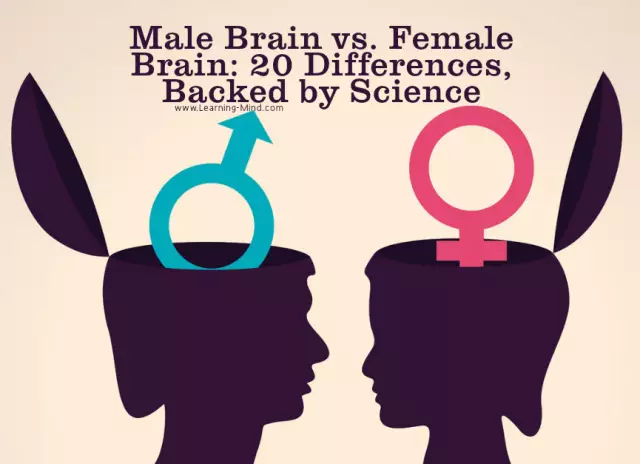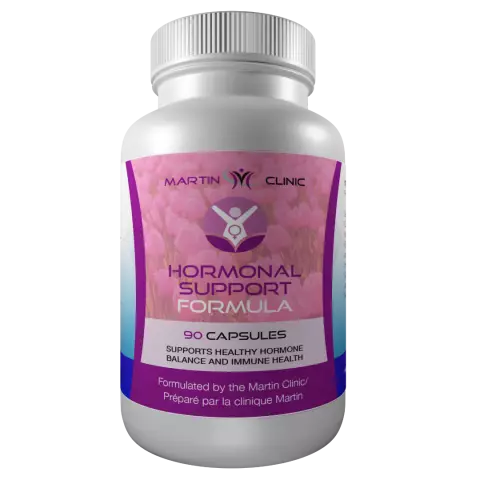- Author Rachel Wainwright wainwright@abchealthonline.com.
- Public 2023-12-15 07:39.
- Last modified 2025-11-02 20:14.
Hormonal disruption in a woman: 7 signs
Stability of hormonal levels is one of the most important conditions for maintaining a woman's health. Moreover, the endocrine system is a thin apparatus, extremely sensitive to any external influences. Changes in lifestyle (for example, diet), emotional stress, infectious diseases, and taking certain medications can become the cause of hormonal disruption. In addition, the work of the endocrine glands has its own natural specifics at certain points in life: at different stages of the menstrual cycle or pregnancy, after childbirth, during the period of feeding the baby or during menopause. In order to see a doctor on time and minimize the problems that arise in the body, it is necessary to monitor hormonal disruptions. To do this, a woman must know how events of this kind affect her health, appearance and mood. Seven main signs can signal the instability of the hormonal background.

Source: depositphotos.com
Acne
Contrary to popular belief, the presence of acne (acne) is characteristic not only of adolescence. Disruption of the sebaceous glands, accompanied by the occurrence of comedones and inflamed acne, is a consequence of an imbalance between male and female hormones in the body. This phenomenon is associated with both too active production of androgens and estrogen deficiency. The immediate "culprits" may be pathologies of the endocrine glands (for example, Cushing's syndrome or polycystic ovary disease), inflammatory diseases of the genital organs. Acne is often triggered by a natural or artificially induced change in hormonal status: after an abortion or stopping taking oral contraceptives, during pregnancy or breastfeeding. About 70% of women notice the regular occurrence of single acne 2-7 days before menstruation.
Change in hair growth rate
An imbalance between male and female hormones affects the activity of hair follicles and can lead to accelerated male-pattern hair growth (hirsutism). This symptom is typical, for example, for women during menopause. In some types of polycystic ovary disease, a combination of facial hair growth with acne is a diagnostic feature.
Menstrual irregularities
The normal menstrual cycle is 21 to 35 days. Discharge usually lasts no more than 7 days, their volume is 20-80 ml. A deviation from these values - both in terms of timing and in the amount of discharge - is considered a violation. The endocrine causes of menstrual irregularities can lie not only in the production of sex hormones. For example, with hyperthyroidism (hyperfunction of the thyroid gland), there is an irregularity and soreness of menstruation, a paucity of discharge. Type 1 diabetes mellitus often contributes to the formation of a too long menstrual cycle, and also provokes an early onset of menopause. Irregularity of menstruation is also possible with pathologies of the pituitary gland.
Sudden weight changes
Rapid weight loss against the background of increased appetite may indicate the development of decompensated diabetes or hyperthyroidism. Weight gain is associated with obesity (due to disorders of insulin metabolism), with the accumulation of large volumes of fluid due to disorders in the thyroid gland.
Increased sweating during sleep
In women during menopause, night sweats are one of the symptoms of hormonal imbalance characteristic of menopause. In younger patients, such a disorder may indicate the onset of hyperthyroidism.
Constant fatigue
With pathologies of the thyroid gland, patients complain of rapid physical and mental fatigue, tremors throughout the body, difficulty in performing actions that require minimal load (for example, when climbing stairs or carrying a small load). However, similar symptoms are observed with other endocrine problems (Cushing's syndrome, disorders of insulin metabolism).

Source: depositphotos.com
Instability of mood
The emotional sphere is closely related to the hormonal background. Any disruption in this area leads to mood swings. So, with hyperthyroidism and hormonal disorders associated with menopause, women become irritable, touchy, tearful. They experience a sense of fear, uncontrollable anxiety. Attacks of depression are common in Cushing's syndrome and hyperglycemia. Patients cannot do anything because they feel too weak, regardless of the complexity of the intended activity.
If you notice at least some of the described deviations, you should immediately consult a doctor. You shouldn't blame poor health on fatigue: it may be a sign of the onset of a serious illness.
YouTube video related to the article:

Maria Kulkes Medical journalist About the author
Education: First Moscow State Medical University named after I. M. Sechenov, specialty "General Medicine".
Found a mistake in the text? Select it and press Ctrl + Enter.






